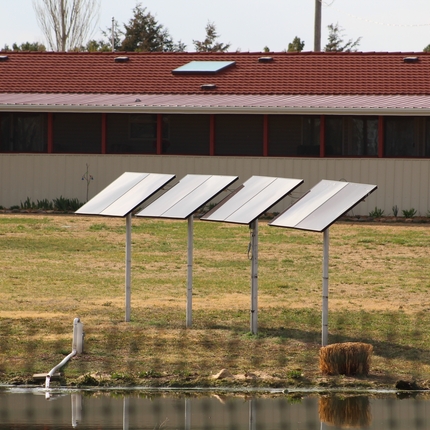By Lucas Nelsen, former staff member
As renewable energy continues to bring prosperity to states with supportive policies, rural communities are in the spotlight. Solar and wind energy projects create new jobs and tax revenue in communities that host them, helping them become more independent and resilient.
One of the most useful tools for people who want to generate their own energy from renewables is net metering. Net metering allows consumers to become partially energy independent by producing their own electricity and sending their excess energy back to the grid. These customer-generators are often reimbursed for extra energy through credits on their utility bills, essentially allowing them to turn back their electric meter.
Through net metering, homeowners are able to save on energy rates while utilities gain access to local, renewable energy that they can use to meet the needs of other customers. Meanwhile, the installation of generating systems like solar panels brings jobs to communities where consumers are looking to invest in projects. In Nebraska, the solar industry already supports more than 1,300 jobs, and there is plenty of room for the industry to grow as panels continue to get cheaper and more efficient.
Legislative Bill 509 in the Nebraska Legislature would raise the existing cap on the size of projects that qualify for net metering. Allowing consumers to send more of their excess renewable energy to the grid helps lower costs, creates new economic opportunities, and promotes energy independence.
As senators debate these changes, they must consider the benefits of tools like net metering. Expanding these policies empowers consumers and allows for an emerging industry to continue growing.





